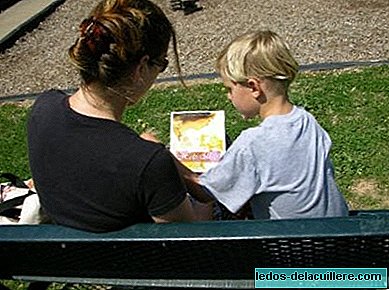
We live in a world that has gone from living with nature and almost destroying it to another that begins to respect it but lives isolated from it. We have built large cities of brick and glass that surround small expressions of nature but have nothing to do with it.
We have gone from having an army of woodcutters in our mountains to architects and artists of different kinds discussing what is the most beautiful way to show the world what is beautiful in itself. We have gone from a society that considered nature as another obstacle on the way to another that takes it as an ornament in their lives, something to enjoy from time to time through a glass.
And the case is that our generation, or at least the majority, if you could enjoy the countryside, the summer afternoons on the trails, the races on the fallen leaves in the fall, climb the trees in winter and those with a little more luck, they could eat a fruit fresh from the tree. But that is over, this world of consoles and multi-inch flat TVs with hundreds of channels locks us at home, we gain quality, they say, but we lose many more things and here I bring you a list of why I think we should recover the field, Even in a park. Some reasons why we should encourage our children to spend more time playing outside.
When I was a child, I remember that one could be on the hill for as long as he wanted, and it certainly wasn't something that mattered to anyone. Moreover, the feeling was rather that if you didn't have to work or a meal with the family, why did you want to be in the country? Another thing was very different from us, the children, we spent the summers in town, or on weekends or on vacation with your parents. It was so different from the city, so many living things to collect and with which to make your mother scream when she saw you with them. Now the most collectible live bug we have at home are viruses, of those we have lots. What do we miss then?

Children who spend more time playing abroad are physically more active, which prevents obesity, heart disease and diabetes in adulthood. Of course, for this we must continue to maintain certain healthy habits once we grow, something that we have forgotten.
Those children with school environments rich in nature, large gardens, trees and large green play areas are calmer, which helps them pay more attention in class and take advantage of those hours.
Children with some attention deficit disorder improve their symptoms after spending a season in nature.
Children who play regularly in environments with abundant nature have more advanced motor skills, such as agility, balance and coordination, and get sick less frequently.
Playing outside causes vitamin D levels to rise, which helps strengthen bones and the immune system. Recall that vitamin D is synthesized in the skin by the effect of sunlight.
Children who know where fruits and vegetables come from, who are taught to grow these foods are more likely to consume them and keep healthy habits in the future. It is clear that if they have planted them themselves they cannot be bad.
Children who play abroad develop their imagination more, are more sociable and interact better with others. A toy, a video game or television does not help the development of the child's imagination, as they are intended to direct the game in a certain way. A better relationship between them, what we called gang, will make the practice of abuse less likely, what we know by bulling.
Children whose schools make them participate in programs or classes in nature get higher than average scores in the tests.
Children more frequently exposed to natural environments develop better concentration, reasoning and observation. They also have a better developed view and have a lower incidence of myopia and vision problems.

How could we say that a child running through the mountains is going to get dirty more than if we sit in front of the TV and that it is possible that the chances of dressing a plaster at some time in his life are higher than those at home stuck, but I think it's something that compensates in the long run.












